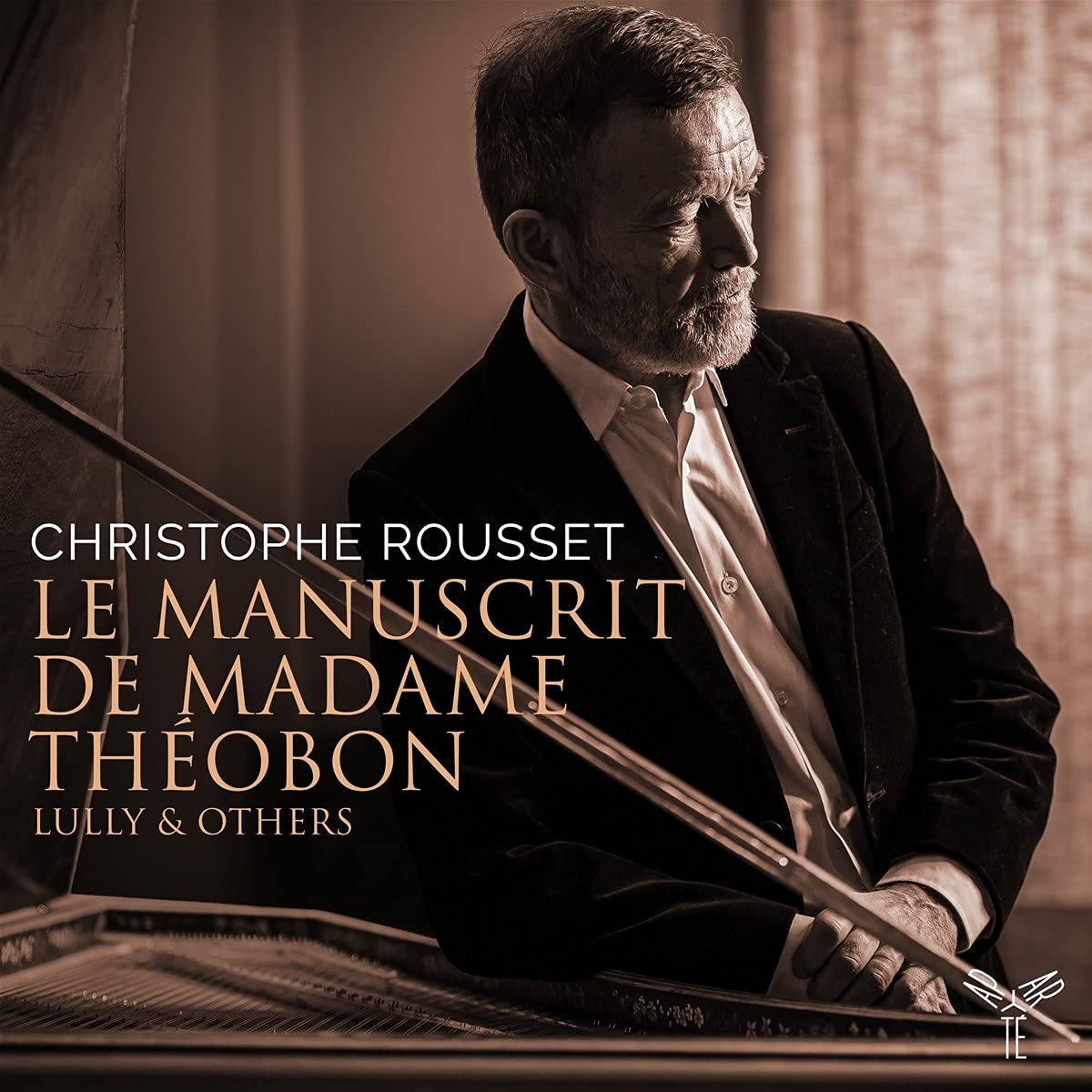Keyboard pieces by Lully, de Chambonnières, d’Anglebert, Hardel, Couperin, Monnard, Gautier, Lebèque and Anon.
Christophe Rousset Harpsichord
Aparte AP256
2 CDs
Full Price

The Review
Who would have thought it but ebay has come to the rescue of 17th century French harpsichord music! By sheer luck Christophe Rousset, one of the finest contemporary exponents of the genre, saw an advert for a manuscript volume and snapped it up in 2004.
He recognised many of the pieces from his own performances, whether as a player or as Director of Les Talens Lyriques, but also found a trove of unpublished and unknown items too. He has recorded the finds on a 1704 two manual harpsichord by Nicolas Dumont which has a wonderful variety of timbres, enabling Rousset to make the most of the differences in the composers’ styles.
Lydie de Rochefort-Théobon, it turns out, had a two year fling with Louis XIV from 1670 (they were both 28 when they met) until his more powerful mistress, Françoise-Athénäis de Montespan, who was two years younger, had her chucked out. She was moved within the court to be a lady in waiting to Louis’s sister-in-law, the Duchess of Orleans, who made sure Louis’s favourites were still available, so Lydie probably merely said au revoir. This manuscript, though, seems to have been copied for her later, from the mid 1680s, when Lydie was in her forties and married to the Comte de Beuvron. Rousset suggests it was not used much, so this recording is likely to be the first time its contents have ever been given the attention the copyists would have hoped for.
Some of the pieces, like d’Anglebert’s Les Folies d’Espagne and the prelude from Lully’s Phaeton will be familiar and that is one of the joys of the set – among all the novelties and transcriptions one suddenly hears an old friend. Rousset has grouped the works by key signature, rather than composer or form, which manages to give the listener a natural progression through the two discs. His embellishments all feel unforced – just decorative enough to give the music an extra lift without sounding fussy. This is quite simply beautiful playing of music that is constantly fresh, probably because nobody until Rousset had bothered to play their way through all the pages. The nonchalance of the French aristocracy has become our delightful gain three and a half centuries later.
SM
